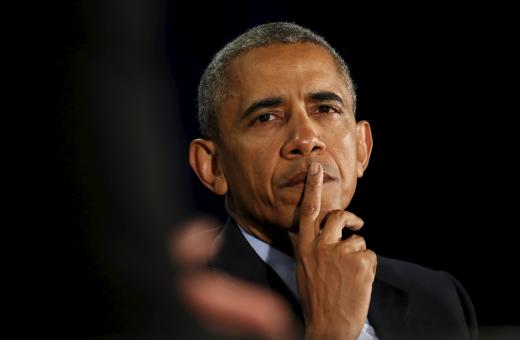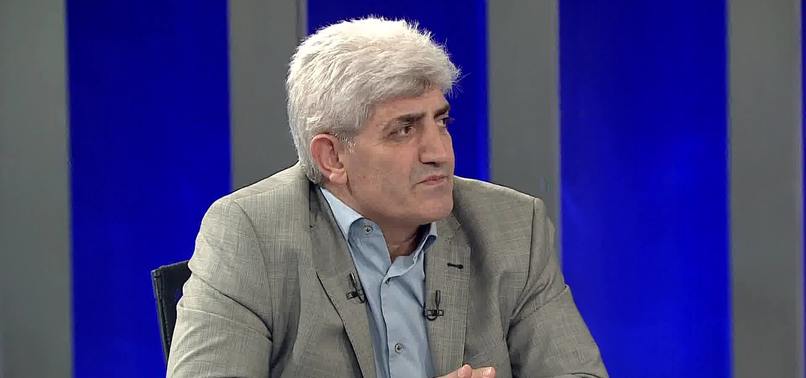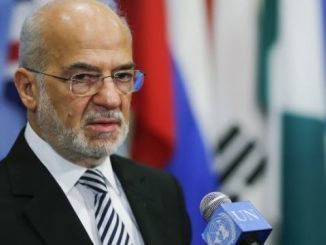
The U.S. administration sought on Friday to contain fallout from a leaked internal memo critical of its Syria policy, but showed no sign it was willing to consider the military strikes that the letter, signed by dozens of American diplomats, called for.
Several U.S. officials said that while the White House is prepared to hear the diplomats’ dissenting viewpoint, it is not expected to spur any changes in Obama’s approach to Syria in his final seven months in office.
One senior official said that the test for whether these proposals for more aggressive action are given high-level consideration will be whether they “fall in line with our contention that there is no military solution to the conflict in Syria.”
The document — sent through the State Department’s “dissent channel,” a conduit for voicing contrary opinions that is meant to be confidential — underscored long-standing divisions and frustrations among Obama’s aides over his response to Syria’s war.
Obama’s Syria policy has been predicated on the goal of avoiding deeper military entanglements in the chaotic Middle East but has been widely criticized as hesitant and risk-averse.
A draft of the cable, signed by 51 State Department officers, calls for “targeted military strikes” against Assad — something Obama has long opposed — to stop its persistent violations of a cease-fire.
The document, initially crafted in secret by a small group before their State Department bosses were made aware, was intended to “spark internal discourse” toward a policy shift but was not meant to be made public, according to a person familiar with the matter.
The signatories, mostly rank-and-file diplomats who had worked on Syria policy, may have put their careers at risk, current and former officials said. But State Department spokesman John Kirby insisted there would be no reprisals.
Obama’s critics quickly seized upon the letter, which also calls for a political transition that would usher Assad out.
Read more: 50 US diplomats urge for strikes against Assad regime
US policy in Syria is failing
“Even President Obama’s own State Department believes the administration’s Syria policy is failing,” said Ed Royce, Republican chairman of the House of Representatives Foreign Affairs committee. “Iran, Russia and Assad call the shots in Syria, ignoring the cease-fire and allowing Assad to continue war crimes against his own people.
In what other officials called an attempt to limit any damage to Obama’s policies, one senior U.S. official stressed that it is only natural that “on a subject as complex and complicated as Syria that we have a diversity of views.”
White House spokeswoman Jen Friedman said Obama is open to a “robust discussion” on Syria but insisted that deliberations by Obama’s aides have already looked closely at a range of options.
A former senior U.S. official said disclosure of a document of this type – the final version of which is classified – “corrodes the trust between the president and those who serve him.” But those who signed have no plans to resign, the source familiar with the matter said.
Whoever leaked the memo may have been looking past Obama’s tenure. Presumptive Democratic presidential nominee Hillary Clinton, for instance, was among senior aides who urged Obama early in the conflict to take a stronger stand against Assad.
One U.S. official, who did not sign the cable but has read it, told Reuters the White House remains opposed to deeper American military involvement in Syria and the document was unlikely to alter that.
Aides also have acknowledged privately that even if Obama did decide to take a more aggressive stance, that would be much riskier now that Russian forces are directly supporting their ally Assad and bombing anti-government rebels.
In the meantime, Assad’s position has strengthened.
In Moscow, Kremlin spokesman Dmitry Peskov said he had only seen media reports about the memo, but asserted: “Calls for the violent overthrow of authorities in another country are unlikely to be accepted in Moscow.”
When asked about the leaked memo during a visit to Washington, Saudi Foreign Minister Adel Jubeir told reporters: “We have been arguing from the beginning of the Syrian crisis that there should be more robust intervention in Syria.”



